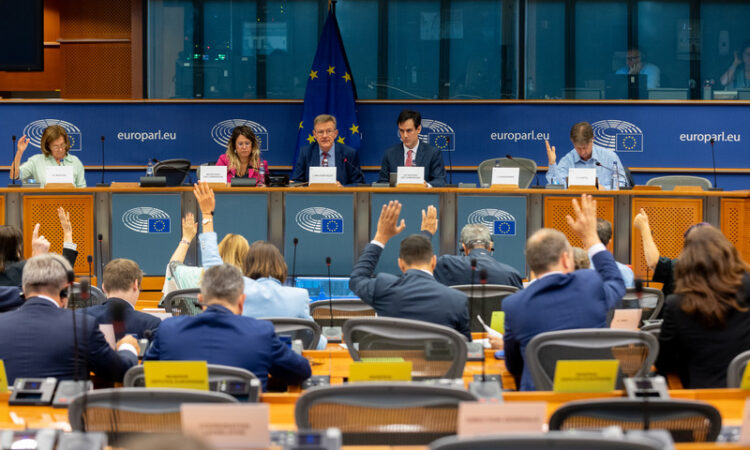
MEPs in the parliament’s budget committee agreed on Wednesday (20 September) on the revision of the EU’s long-term budget, seeking an extra €10bn for the years 2024-2027 compared to the European Commission proposal.
The committee proposal is “ambitious” and “realistic,” said conservative Polish MEP Jan Olbrycht.
He argued that the parliament’s budgetary aspirations boost key budget areas such as crisis-response, migration, and competitiveness for the EU.
In June, the EU executive proposed a €66bn increase to the EU’s long-term budget, to cover expenses linked to migration, costs related to the pandemic recovery plan, a special instrument to boost the EU’s concept of strategic autonomy and €17bn in grants for Ukraine.
The parliament’s report calls for an extra €3bn, on top of the commission’s budget increase request, to finance the new Strategic Technologies for Europe Platform (STEP).
MEPs also demanded an extra €2bn for migration management and an additional €5bn for a specific crisis-response fund that allows the EU to respond to unforeseen emergencies.
The budget committee also agree that all debt costs resulting from the recovery plan, which have been driven up due to inflation, should be placed above the EU budget ceilings to ensure that EU programmes such as cohesion funds are not compromised.
MEPs argue that the sum allocated in the commission’s instrument to cover the borrowing costs falls significantly short of what is needed, leaving a gap of up to €27bn.
The commission’s handling of the recovery plan debt is “disappointing,” said Olbrycht.
The report, which was approved with 23 votes in favour, three against and three abstentions, will be voted in the next plenary in October.
Once adopted, the European Parliament will enter into negotiations with member states.
“If we have political ambition we need to be coherent with the finances,” said socialist Portuguese MEP Margarida Marques.
“We ask member states to step up now and meet the expectations of our citizens and businesses,” she also said.
EU countries, which still have to reach an agreement on the revision, are likely to oppose the parliament’s top-up request.
While most countries have expressed their support for providing financial aid to Ukraine, the remaining parts of the package are likely to encounter more opposition.
The review of the EU’s long-term budget is also due to be discussed in the upcoming summit of EU leaders next month.
In 2020, EU leaders agreed €750bn recovery package (2018 prices) and the €1.1 trillion EU’s long-term budget for 2021 to 2027.






